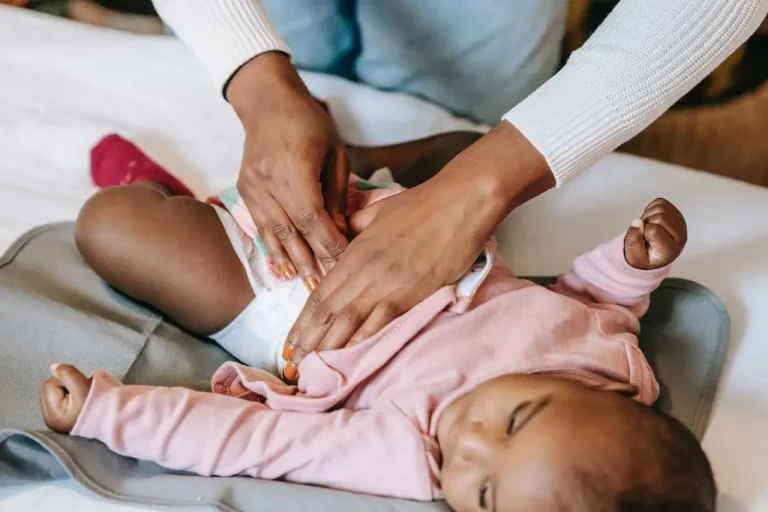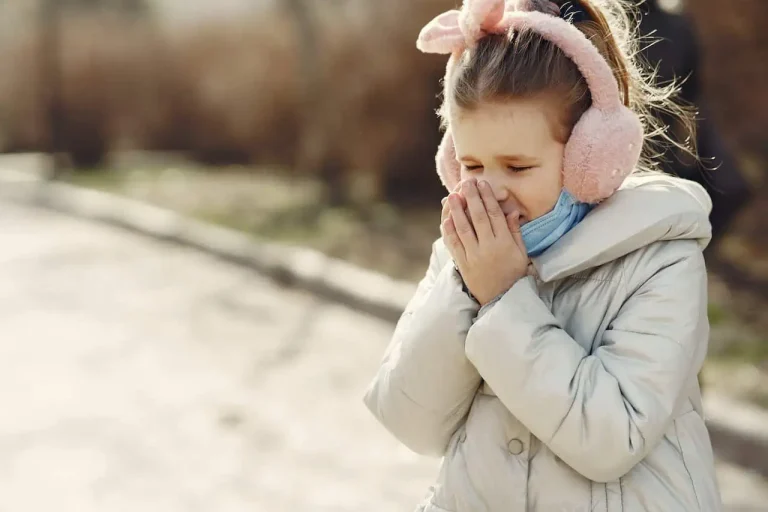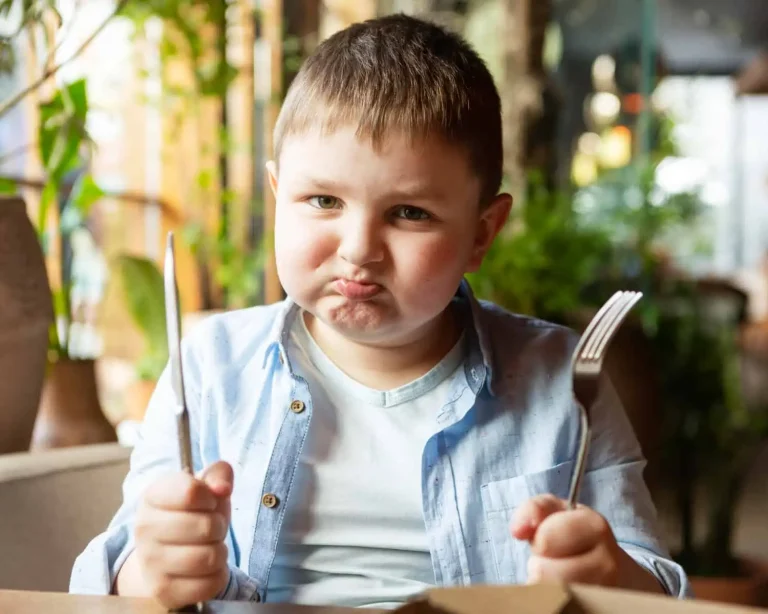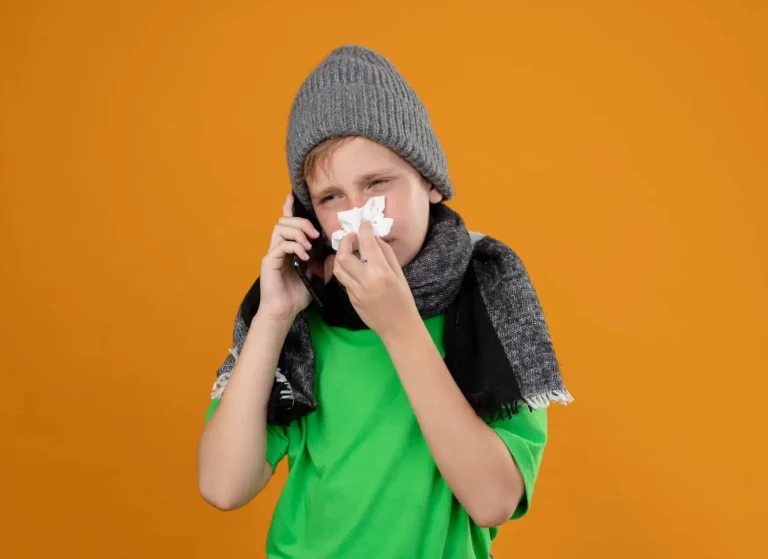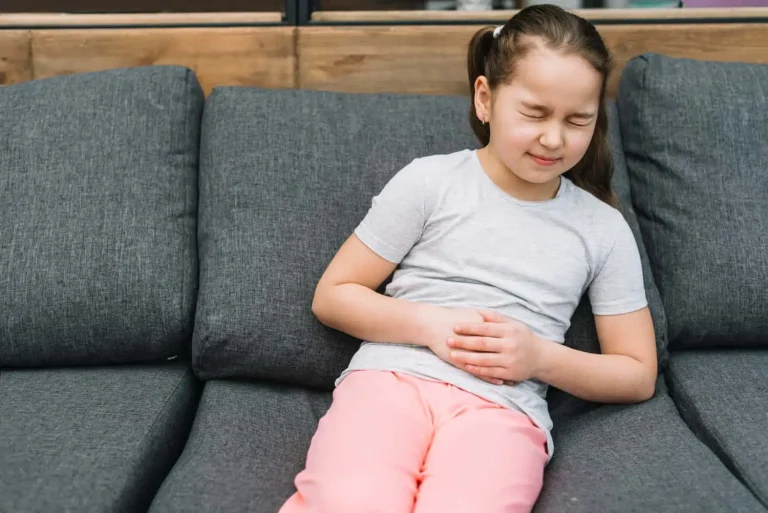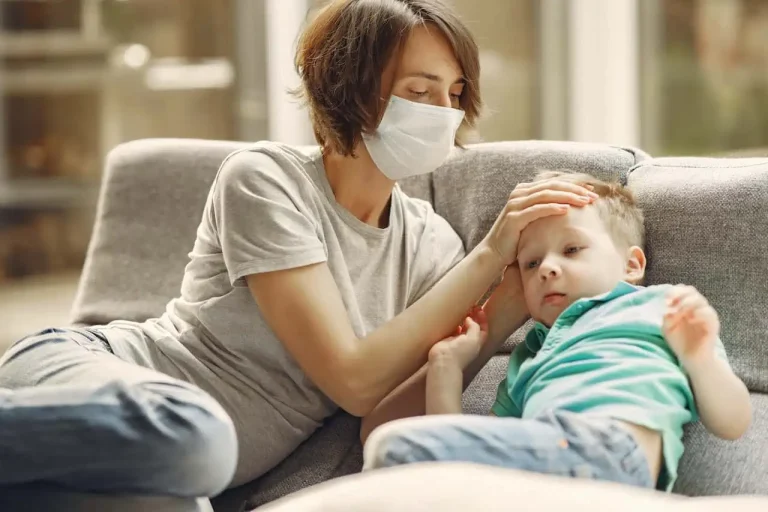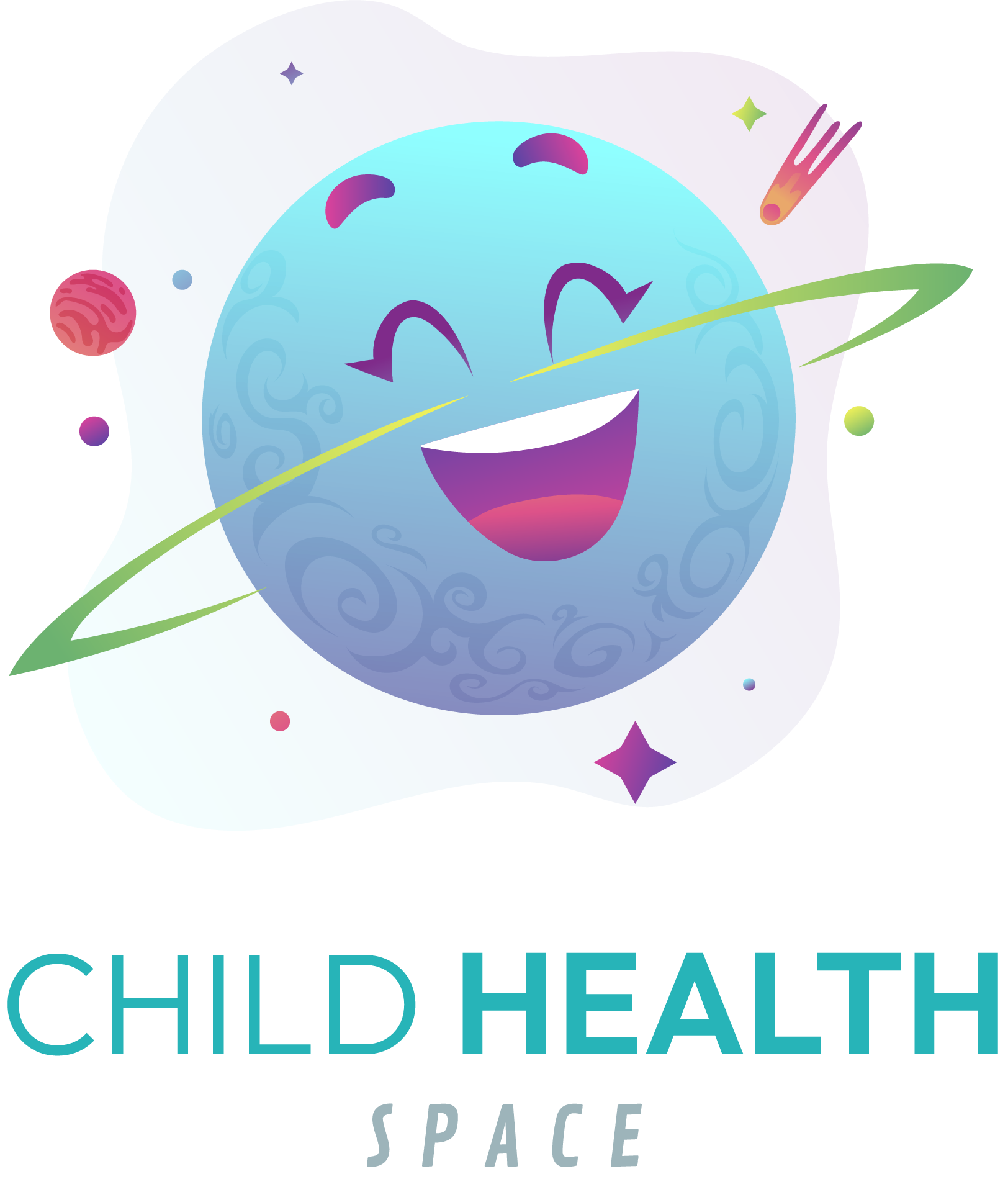
1. “Healthy Gut, Happy Kids: Learn Everything About Diarrhea in Children”

Introduction:
Diarrhea is a common condition in children, characterized by loose, watery stools. While it can be a mild and self-limiting condition, it can also be severe and life-threatening.
Diarrhea is a common problem in children, especially in those under the age of five. According to the World Health Organization, diarrhea is the second leading cause of death in children under five years old, accounting for around 525,000 deaths each year. In addition, it is estimated that children under the age of three have an average of three episodes of diarrhea each year. It is important for parents and caregivers to be aware of the symptoms and causes of diarrhea, and to know how to manage it properly.
Definition and Symptoms of Diarrhea in Children:
Diarrhea is defined as the passage of loose or watery stools, usually three or more times a day. It can be acute, lasting less than 14 days, or chronic, lasting longer than 14 days. In addition to loose stools, other common symptoms of diarrhea in children include abdominal pain, cramping, bloating, nausea, and vomiting.
Importance of Identifying and Managing Diarrhea in Children

Diarrhea can lead to dehydration, which can be dangerous, especially in infants and young children. It is important to identify and manage diarrhea promptly to prevent dehydration and other complications. Proper management of diarrhea can also prevent the spread of infectious agents to others.
Causes of Kids Diarrhea
Diarrhea in children can be caused by a variety of factors, including bacterial, viral, parasitic, and noninfectious causes.
Bacterial Causes:
Bacterial infections are a common cause of diarrhea in children. Some of the most common bacterial causes of diarrhea include:
Salmonella: This bacterium is commonly found in contaminated food and water, and can cause severe diarrhea, fever, and abdominal pain.
Shigella: This bacterium is highly contagious and can be spread through contaminated food, water, or hands. It can cause severe diarrhea, fever, and abdominal cramping.
Escherichia coli (E. coli): Some strains of E. coli can cause diarrhea, especially in young children. E. coli infections can be spread through contaminated food or water, or through contact with infected animals.
Campylobacter jejuni: This bacterium is a common cause of foodborne illness, and can cause diarrhea, fever, and abdominal pain.
Viral Causes:
Viral infections are another common cause of diarrhea in children. Some of the most common viral causes of diarrhea include:
Rotavirus: This virus is highly contagious and can cause severe diarrhea, fever, and vomiting. It is most common in infants and young children.
Norovirus: This virus is highly contagious and can cause severe diarrhea, nausea, and vomiting. It is often referred to as the “stomach flu.”
Adenovirus: This virus can cause diarrhea, as well as respiratory and eye infections.
Parasitic Causes:
Parasites can also cause diarrhea in children. Some of the most common parasitic causes of diarrhea include:
Giardia lamblia: This parasite is commonly found in contaminated water, and can cause diarrhea, abdominal cramping, and bloating.
Cryptosporidium: This parasite is also found in contaminated water, and can cause diarrhea, stomach cramps, and dehydration.
Noninfectious Causes:
In addition to infectious causes, diarrhea in children can also be caused by noninfectious factors, such as:
Antibiotic Use: Antibiotics can disrupt the balance of bacteria in the gut, leading to diarrhea.
Food Allergies and Intolerances: Certain foods or food additives can cause diarrhea in children who are allergic or intolerant to them.
Risk Factors for Developing Diarrhea in Children:
Several factors increase the risk of developing diarrhea in children. Poor sanitation and hygiene, lack of access to clean water, and malnutrition are significant contributors to diarrhea incidence. Children living in low-income settings are at higher risk of developing diarrhea due to inadequate access to healthcare and lack of proper nutrition. Additionally, exposure to contaminated water, food, or soil can cause diarrhea. Children who have weak immune system or underlying medical conditions, such as HIV, are more vulnerable to diarrhea.
Prevention Strategies for Kids Diarrhea:
Preventing diarrhea in children is crucial, as it can lead to dehydration, malnutrition, and other severe health problems. Parents and caregivers can take several steps to prevent diarrhea in children. The following are some effective prevention strategies:
Hand washing and hygiene: Proper hand washing is essential to prevent diarrhea. Parents should encourage children to wash their hands regularly, especially after using the toilet and before eating. Using soap and clean water, and drying hands with a clean towel or air dryer, can help reduce the spread of diarrhea-causing germs.
Breastfeeding and appropriate formula feeding: Breastfeeding is the best way to protect infants from diarrhea. Breast milk contains essential nutrients and antibodies that help strengthen the immune system and prevent infections. If breastfeeding is not possible, parents should use safe and appropriate formula feeding practices, such as using clean water and sterilized bottles.
Safe food and water consumption: Eating contaminated food or drinking contaminated water can cause diarrhea. Parents should ensure that the food and water they give their children are safe and clean. Boiling water, washing fruits and vegetables thoroughly, and cooking food at the right temperature can help reduce the risk of diarrhea.
Vaccinations against certain types of diarrhea: Some types of diarrhea can be prevented with vaccinations. Parents should consult with their healthcare providers about the recommended vaccination schedule for their children.
Diagnosis of Kids Diarrhea:
Diagnosing diarrhea in children involves a physical examination and stool sample analysis. A healthcare provider will ask about the child’s symptoms, such as the frequency and consistency of stools, and examine the child’s abdomen for signs of dehydration and other complications. A stool sample analysis can help determine the cause of diarrhea, such as bacterial or viral infections.
Symptoms of Diarrhea in Kids:
The symptoms of diarrhea in kids can vary depending on the cause of the diarrhea. Common symptoms include loose, watery stools, abdominal cramps, bloating, nausea, vomiting, and fever. Kids with diarrhea may also experience dehydration, which can cause symptoms such as dry mouth, decreased urination, and lethargy.
Treatment Options for Kids Diarrhea:
The treatment options for kids diarrhea depend on the severity and cause of the illness. The following are some effective treatment options:
1.Oral Rehydration Therapy
Oral rehydration therapy (ORT) like pedialyte is a simple and effective way to prevent dehydration caused by diarrhea. ORT involves drinking fluids that contain salt and sugar to replace lost fluids and electrolytes. Commercially available oral rehydration solutions are available, or you can make your own solution by mixing one teaspoon of salt and eight teaspoons of sugar in one liter of clean water.
2.Probiotics
Probiotics are beneficial bacteria that live in our intestines and help maintain digestive health. Some studies have shown that certain strains of probiotics can reduce the duration and severity of diarrhea in children. Probiotics can be found in foods such as yogurt or taken in supplement form.
3.Zinc Supplements
Zinc is an essential mineral that plays a vital role in the immune system and helps the body fight off infections. Studies have shown that zinc supplements can reduce the severity and duration of diarrhea in children.
4.Avoid Certain Foods
Certain foods can aggravate diarrhea and make it worse. Avoid giving your child fatty or spicy foods, dairy products, caffeine, and sugary foods or drinks. Stick to bland foods such as bananas, rice, applesauce, and toast.
5.Breastfeeding
Breastfeeding is an essential way to prevent diarrhea in infants. Breast milk contains antibodies that can help protect your baby from infections that cause diarrhea in children.
6.Electrolyte Drinks
Electrolyte drinks can help replenish fluids and electrolytes lost during diarrhea in children. These drinks contain a balanced amount of sugar and salt and are available in most drugstores.
7.Medications
Antibiotics may be prescribed if the diarrhea is caused by a bacterial infection. However, they are not effective against viral diarrhea, and overuse can lead to antibiotic resistance. Antibiotics should only be used when necessary and under the guidance of a healthcare supervisor. Anti-diarrheal medications such as loperamide can help reduce diarrhea symptoms, but they should be used with caution in children and only under a doctor’s supervision.
8.Hygiene
Good hygiene practices such as handwashing and keeping surfaces clean can help prevent the spread of diarrhea-causing bacteria and viruses.
9.Fluid Intake
Encourage your child to drink plenty of fluids, including water, oral rehydration solutions like homemade Pedialyte, and electrolyte drinks. Avoid giving your child sugary drinks or fruit juices, which can make diarrhea worse.
10.Rest
Encourage your child to rest and avoid strenuous activity while they recover from diarrhea.
When to Seek Medical Attention:
Most cases of diarrhea in children are mild and go away on their own within a few days. However, some cases require medical attention.
If your child has diarrhea, it’s important to watch for the following signs that indicate a need for medical attention:
- Signs of dehydration: Diarrhea in children can cause dehydration, which can be dangerous. Watch for signs of dehydration, such as dry mouth, decreased urination, sunken eyes, and lethargy. If your child shows any signs of dehydration, seek medical attention immediately.
- High fever: If your child has a fever of 102°F or higher, it could be a sign of a bacterial infection, such as salmonella or shigella. These infections can cause serious complications and require medical attention.
- Bloody stools: If diarrhea in children is accompanied by blood in the stool, it could be a sign of a more serious condition, such as inflammatory bowel disease. Seek medical attention immediately if you notice blood in your child’s stool.
- Severe stomach pain: If your child experiences severe stomach pain, it could be a sign of a more serious condition, such as appendicitis or a bowel obstruction. Seek medical attention immediately if your child experiences severe stomach pain.
- Prolonged diarrhea: If diarrhea in children lasts for more than a week, it could be a sign of a more serious condition, such as a parasitic infestation.
Potential Complications of Kids Diarrhea:

While diarrhea can be mild and self-limiting, it can also lead to serious complications if not managed properly. The potential complications of diarrhea in children , including dehydration, malnutrition, electrolyte imbalances, and the expected prognosis and recovery time.
Dehydration:
One of the most common complications of diarrhea in children is dehydration. Dehydration occurs when the body loses too much fluid and electrolytes, which are minerals that help maintain the balance of fluids in the body. Dehydration can be mild, moderate or severe, depending on the extent of fluid and electrolyte loss. Signs of dehydration in kids include:
- Dry or sticky mouth
- Decreased urination or wet diapers
- Dark yellow or strong-smelling urine
- Sunken eyes or cheeks
- Thirst
- Lethargy or irritability
- Cool or clammy skin
- Rapid heartbeat or breathing
To prevent dehydration, it is essential to give your child plenty of fluids, such as water, breast milk, formula or oral rehydration solution (ORS). ORS is a special solution that contains the right amount of salt, sugar and water to help replace the lost fluids and electrolytes. You can buy ORS from a pharmacy or make it at home by mixing one liter of clean water with six teaspoons of sugar and half a teaspoon of salt.
Malnutrition:
Another potential complication of diarrhea in children is malnutrition. Malnutrition occurs when the body does not get enough nutrients, such as protein, vitamins and minerals, to support its growth and development. Malnutrition can be caused by various factors, such as:
- Loss of appetite due to diarrhea
- Inability to absorb nutrients due to damage to the intestinal lining
- Increased metabolic demands due to fever or infection
To prevent malnutrition, it is important to give your child a balanced and nutritious diet that includes foods from all food groups, such as:
- Carbohydrates: bread, rice, pasta, cereal, fruits and vegetables
- Proteins: meat, fish, poultry, eggs, beans and lentils
- Fats: oil, butter, nuts and seeds
- Vitamins and minerals: dairy products, fruits and vegetables, fortified cereals and breads
If your child has diarrhea, you can still offer him/her foods that are easy to digest, such as bananas, rice, applesauce, toast, crackers, boiled potatoes and chicken broth.
Electrolyte Imbalances:
Electrolyte imbalance is another complication of diarrhea in children , particularly in severe cases. Electrolyte imbalances occur when the levels of electrolytes, such as sodium, potassium, calcium and magnesium, are too high or too low in the body. Electrolyte imbalances can cause various symptoms, such as:
- Muscle weakness or cramps
- Nausea or vomiting
- Confusion or seizures
- Irregular heartbeat
To prevent electrolyte imbalances, it is important to give your child plenty of fluids that contain electrolytes, such as ORS. You can also offer your child foods that are rich in electrolytes, such as:
- Sodium: broth, pickles, olives, pretzels and crackers
- Potassium: bananas, potatoes, tomatoes, orange juice and yogurt
- Calcium: milk, cheese, yogurt and green leafy vegetables
- Magnesium: nuts, seeds, whole grains, beans and lentils
Prognosis and Expected Recovery Time:
In terms of recovery time, mostly diarrhea in children will begin to feel better within a few days, with symptoms resolving completely within a week or so. However, the duration of diarrhea can vary depending on the cause and severity of the condition. It is important to stay well-hydrated and to rest as much as possible during this time, as this can help to speed up the recovery process.
- If diarrhea in children is severe or persists for more than a week, it is important to seek medical attention. Your doctor may recommend medication or other treatments to help manage your child’s symptoms and prevent complications. With proper care and attention, most children with diarrhea will make a full recovery within a week or so.
Diet and Nutrition for Diarrhea in Children:

When a child is suffering from diarrhea, it is important to take steps to manage their symptoms and help them recover as quickly as possible. One key aspect of this is ensuring that they are receiving adequate nutrition and hydration, even if they are not feeling well. Here are some tips for managing diet and nutrition for diarrhea in children:
- Encourage plenty of fluids: Diarrhea can cause dehydration, so it is important to encourage your child to drink plenty of fluids to prevent this. Water, clear broths, and oral rehydration solutions (such as Pedialyte) can all be good options. Avoid sugary drinks, as these can make diarrhea worse.
- Offer small, frequent meals: Rather than large meals, offer your child small, frequent meals throughout the day. This can help to ease symptoms and prevent further irritation of the digestive tract.
- Choose bland, easy-to-digest foods: When your child is experiencing diarrhea, it can be helpful to choose foods that are bland and easy to digest. Some good options include plain rice, bananas, applesauce, toast, and crackers.
- Avoid certain foods: Some foods can worsen diarrhea or irritate the digestive tract. Avoid spicy or greasy foods, dairy products (unless they are lactose-free), caffeine, and alcohol.
- Consider probiotics: Probiotics are beneficial bacteria that can help to restore the natural balance of bacteria in the gut. There is some evidence to suggest that probiotics may help to reduce the duration and severity of diarrhea in children.
- Consult with your doctor: If you have concerns about your child’s diet or nutrition during a bout of diarrhea, it is always a good idea to consult with your doctor. They can offer advice and guidance tailored to your child’s specific needs and medical history.
By following these tips, you can help to ensure that your child is receiving the proper nutrition and hydration they need to recover from diarrhea as quickly as possible. Remember to monitor their symptoms closely and seek medical attention if you have any concerns about their health or well-being.
Preventing Kids Diarrhea: Tips for Parents
Ensure Good Hygiene Practices
One of the main causes of diarrhea in children is poor hygiene practices. Parents should ensure that their children wash their hands frequently, especially before and after meals, after using the toilet, and after playing outside. Parents should also clean and sanitize their children’s toys and other objects that they may put in their mouths.
Provide Clean Drinking Water
Drinking contaminated water can cause diarrhea in children. Parents should ensure that their children drink clean and safe water. They can use a water filtration system or boil water before drinking. Parents should also ensure that their children do not drink water from unknown sources.
Practice Proper Food Preparation

Improperly prepared food can cause diarrhea in children. Parents should ensure that they prepare food in a clean and hygienic environment. They should also ensure that the food is cooked thoroughly and stored at the correct temperature. Parents should also ensure that their children do not eat raw or undercooked food.
Ensure a Healthy Diet

A healthy diet can help prevent diarrhea in children. Parents should ensure that their children eat a well-balanced diet that includes fruits, vegetables, whole grains, and lean protein. They should also ensure that their children drink plenty of fluids, including water and milk.
Avoid Contact with Sick People
Children are more susceptible to getting sick from other sick people. Parents should ensure that their children avoid contact with sick people, especially those with diarrhea or other illnesses. They should also ensure to stay away from crowded places, such as public transportation and malls in order to prevent diarrhea in children.
Get Vaccinated
Certain vaccines can help prevent diarrhea in children. Parents should ensure that their children receive all the recommended vaccinations, including those for rotavirus and other gastrointestinal illnesses.
Seek Medical Attention when Necessary

Diarrhea can sometimes be a sign of a more serious illness. Parents should seek medical attention for their children if they have persistent diarrhea, are vomiting, have a high fever, or show signs of dehydration.
Dealing with Dehydration in Kids with Diarrhea
Dehydration is a serious concern of diarrhea in children. Diarrhea can cause children to lose a significant amount of fluids and electrolytes, which can lead to dehydration. Dehydration occurs when the body loses more fluids than it takes in, and this can lead to a range of symptoms, including thirst, dry mouth, tiredness, and dizziness.
It is essential for parents to know how to deal with dehydration due to diarrhea in children to prevent serious health complications. The following are some tips for managing dehydration in children:
- Keep Kids Hydrated: The most important thing to do when a child has diarrhea is to keep them hydrated. Encourage your child to drink plenty of fluids, including water, clear broths, and oral rehydration solutions (ORS). Avoid drinks that contain caffeine, sugar, or carbonation, as these can make dehydration worse.
- Offer Small, Frequent Meals: Children with diarrhea may not feel like eating much, but it is important to offer small, frequent meals throughout the day. Offer bland foods such as bananas, rice, applesauce, and toast, which can help to settle the stomach and provide energy.
- Monitor Fluid Intake and Output: Keep track of how much fluid your child is drinking and how often they are urinating. If your child is not urinating regularly, this may be a sign of dehydration.
- Seek Medical Attention: If your child is showing signs of severe dehydration, such as sunken eyes, dry mouth, or lethargy, seek medical attention immediately. Severe dehydration can be life-threatening, and medical treatment may be necessary to restore fluids and electrolytes.
- Avoid Medications: Over-the-counter medications, such as anti-diarrheal drugs, should not be given to children without a doctor’s recommendation. These medications can worsen dehydration and should only be used under medical supervision.
In summary, it is crucial to keep children hydrated and well-fed when they have diarrhea. Parents should monitor their child’s fluid intake and output, offer small, frequent meals, and seek medical attention if their child shows signs of severe dehydration. With proper management, most children can recover from diarrhea without any serious health complications.
Conclusion
In conclusion, diarrhea is a common condition that can affect children of all ages. While it is usually not a cause for concern, it can lead to dehydration and other complications if not managed properly. Parents can take steps to prevent diarrhea in children, such as practicing good hygiene, avoiding certain foods and drinks, and making sure their child is up to date on vaccinations.
If a child does develop diarrhea, it is important to keep them well-hydrated and offer small, frequent meals. Parents should also monitor their child’s fluid intake and output and seek medical attention if their child shows signs of severe dehydration.
It is essential for parents to understand the causes and symptoms of diarrhea in children and know how to manage it effectively. With the right care and attention, most children can recover from diarrhea without any long-term health complications. By following the tips and advice outlined in this article, parents can help their child stay healthy and avoid the negative effects of diarrhea.
FAQs
1.What causes diarrhea in kids?
Diarrhea in kids can be caused by a variety of factors, including infections, food allergies or intolerances, medication side effects, and underlying medical conditions.
2.How long does diarrhea in kids typically last?
The duration of diarrhea in kids can vary depending on the cause. Generally, acute diarrhea caused by a virus or bacteria will resolve within a few days to a week, while chronic diarrhea may last for several weeks or months.
3.How can I prevent my child from getting diarrhea?
Practicing good hygiene, including frequent hand washing and proper food handling, can help prevent the spread of infections that can cause diarrhea. Additionally, avoiding certain foods and drinks, such as those that are high in sugar or caffeine, can also reduce the risk of diarrhea.
4.When should I take my child to the doctor for diarrhea?
Parents should seek medical attention for their child if they show signs of severe dehydration, including lethargy, sunken eyes, or infrequent urination. Additionally, if a child has bloody or persistent diarrhea, or if they have recently traveled to a high-risk area, medical attention may be necessary.
5.Can diarrhea in kids be treated with medication?
In some cases, medication may be used to treat diarrhea in kids, particularly if it is caused by a bacterial infection. However, many cases of diarrhea can be managed with changes to diet and hydration.
6.Is it safe to give my child over-the-counter medication for diarrhea?
Over-the-counter medications for diarrhea are not recommended for young children, as they can be harmful and may mask symptoms of more serious underlying conditions. Parents should consult with a healthcare provider before giving their child any medication for diarrhea.
7.How can I help my child recover from diarrhea?
Providing small, frequent meals and encouraging fluid intake can help children recover from diarrhea. Additionally, ensuring that they get plenty of rest and avoiding activities that may exacerbate symptoms can also aid in recovery.
8.Are there any long-term effects of diarrhea in kids?
While most cases of diarrhea in kids will resolve on their own without any long-term effects, severe or chronic cases may lead to dehydration, malnutrition, or other complications. It is important for parents to seek medical attention if their child’s diarrhea is persistent or severe.
9.How can I tell if my child’s diarrhea is serious and needs medical attention?
If your child has diarrhea, it is important to monitor their symptoms and look out for signs that may indicate a more serious condition. Some warning signs include:
- Blood in the stool
- High fever
- Severe abdominal pain
- Vomiting
- Signs of dehydration, such as sunken eyes, dry mouth, and decreased urination
If your child experiences any of these symptoms, it is important to seek medical attention right away.
10.Can probiotics help prevent or treat diarrhea in kids?
Probiotics are live microorganisms that are thought to provide health benefits when consumed. Some studies have suggested that probiotics may help prevent or treat diarrhea in kids, especially those caused by antibiotic use. However, more research is needed to determine the effectiveness of probiotics for this purpose. It is important to talk to your child’s healthcare provider before giving them any probiotics.
11.Can I give my child anti-diarrheal medication?
Anti-diarrheal medications are not recommended for use in children under the age of 12. These medications can have serious side effects in children, including slowed breathing and even death. It is important to talk to your child’s healthcare provider before giving them any medication for diarrhea.
12.How can I prevent my child from getting diarrhea?
There are several steps you can take to help prevent your child from getting diarrhea, including:
- Ensuring good hand hygiene by washing hands frequently and thoroughly
- Ensuring that your child’s food and water sources are safe and clean
- Making sure your child is up to date on their vaccinations
- Avoiding close contact with individuals who have diarrhea or other contagious illnesses
13.Is diarrhea in kids contagious?
Yes, diarrhea can be contagious, especially if it is caused by a viral or bacterial infection. It is important to practice good hygiene and take steps to prevent the spread of illness, especially in settings such as schools or daycare centers where children may be in close contact with each other.

